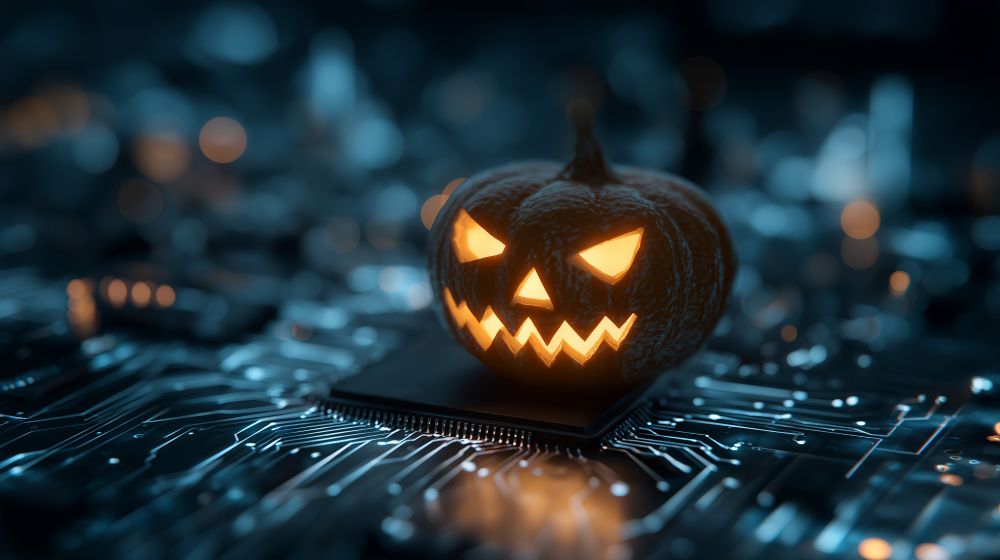
It’s the season of strong passwords, phishing reminders, and PowerPoint fatigue. Too bad hackers don’t care what month it is.
It’s that time of year again. The leaves are changing, pumpkin spice is back, and your inbox is about to fill up with reminders about Cybersecurity Awareness Month. It’s the season when everyone suddenly remembers that hackers exist-- and that passwords should be something stronger than “Autumn2025!”.
For a few short weeks, companies everywhere roll out their annual “don’t click bad links” training, followed by a short quiz no one remembers taking. Then November hits, and it’s back to business as usual-- until, of course, someone actually does click the bad link.
The problem isn’t the reminder. It’s that we’ve turned cybersecurity into a seasonal activity-- like flu shots or company picnics. But hackers don’t take the other eleven months off.
The truth is, cybersecurity training done once a year doesn’t work. It’s like going to the gym in January, taking a single spin class, and then wondering why you don’t have abs by December.
People forget. Not because they’re careless, but because they’re busy running the business, taking care of customers, and dealing with real problems. If cybersecurity only comes up once a year, it never becomes habit-- it becomes background noise.
And when cybersecurity becomes background noise, the risks get louder. That one click on a fake invoice? It can take down an entire network. The “quick” password reset email? Could be the start of a ransomware attack. Every hour your systems are offline costs real money, real clients, and sometimes, your reputation.
The companies that recover fastest from attacks aren’t the ones with the fanciest firewalls-- they’re the ones whose people know what to do when something goes wrong.
That’s why cybersecurity training can’t be a one-time event-- it has to be part of how your company operates. A quick, focused reminder every month will stick far better than an hour-long lecture once a year.
And not everyone needs the same kind of training. Your finance team doesn’t face the same risks as your customer service reps, and neither one needs to know the technical details your IT folks deal with. The point isn’t to make everyone a security expert-- it’s to help people recognize the threats that matter to their role before they turn into a problem.
The best programs don’t drown people in jargon or show twenty slides of outdated scams. They connect the dots between everyday actions and business risk-- because when your employees understand how a single email can halt payroll, lock you out of customer records, or trigger compliance fines, security suddenly feels a lot more personal.
The bottom line? Regular, relevant training costs a fraction of what even one successful attack can do to your business. Think of it like insurance for your people-- the most important line of defense you have.
And since we’re being honest, let’s clear up one more thing: people will click on things. They’ll open an email, click a link, scan a QR code, or approve a fake MFA request because they’re in a hurry. It’s not because they don’t care-- it’s because attackers are good. Really good.
That’s why those “phishing tests” everyone brags about don’t tell the whole story. They make for great reports, but no business on the planet has a 0% click rate. Not yours, not mine, not even the companies selling the phishing tests. Real attackers use psychology, pressure, and timing. They don’t rely on misspellings anymore-- they rely on human behavior.
So instead of pretending clicks won’t happen, smart companies plan for when they do. That means building layers: strong security controls, good monitoring, a response plan that kicks in fast, and employees who know who to call when something feels off. Because when things go wrong-- and eventually, they will-- speed and preparation make the difference between a small incident and a business-ending one.
That’s also why ongoing training matters. Cybersecurity isn’t just about building defenses-- it’s about keeping people sharp enough to use them. A quick reminder every month does far more good than a once-a-year session everyone forgets by Thanksgiving.
Cybersecurity Awareness Month is a great reminder-- but it shouldn’t be the only reminder. Hackers don’t care that it’s October, and they definitely don’t wait for your annual training before sending their next phishing email.
Treating cybersecurity like a seasonal event is like brushing your teeth once a year and hoping for good news at the dentist. Awareness isn’t a campaign. It’s a culture.
If you want your people to take security seriously, it has to be baked into the business year-round-- short, simple, and relevant. Not another 45-- slide PowerPoint marathon, but quick hits that keep your team thinking and your business protected.
Talk to your IT provider or MSP about building a program that fits your company. You don’t need to make everyone a cybersecurity expert-- you just need to keep them alert, aware, and ready. A little time spent now can save a lot of money, stress, and reputation later.
Oh, and before I forget-- please don’t use the season, year, and exclamation point as a password for anything. It’s one of the first ones every hacker, including myself, tries.



